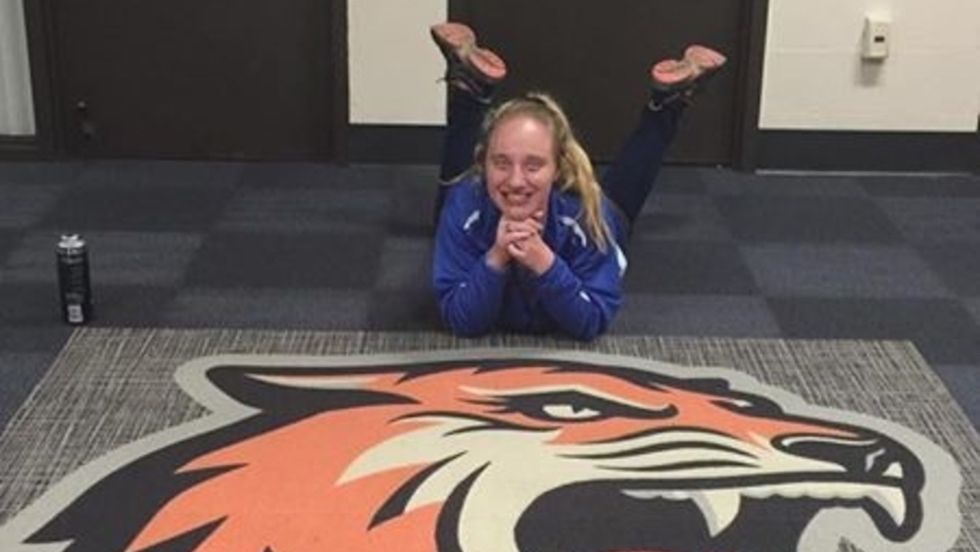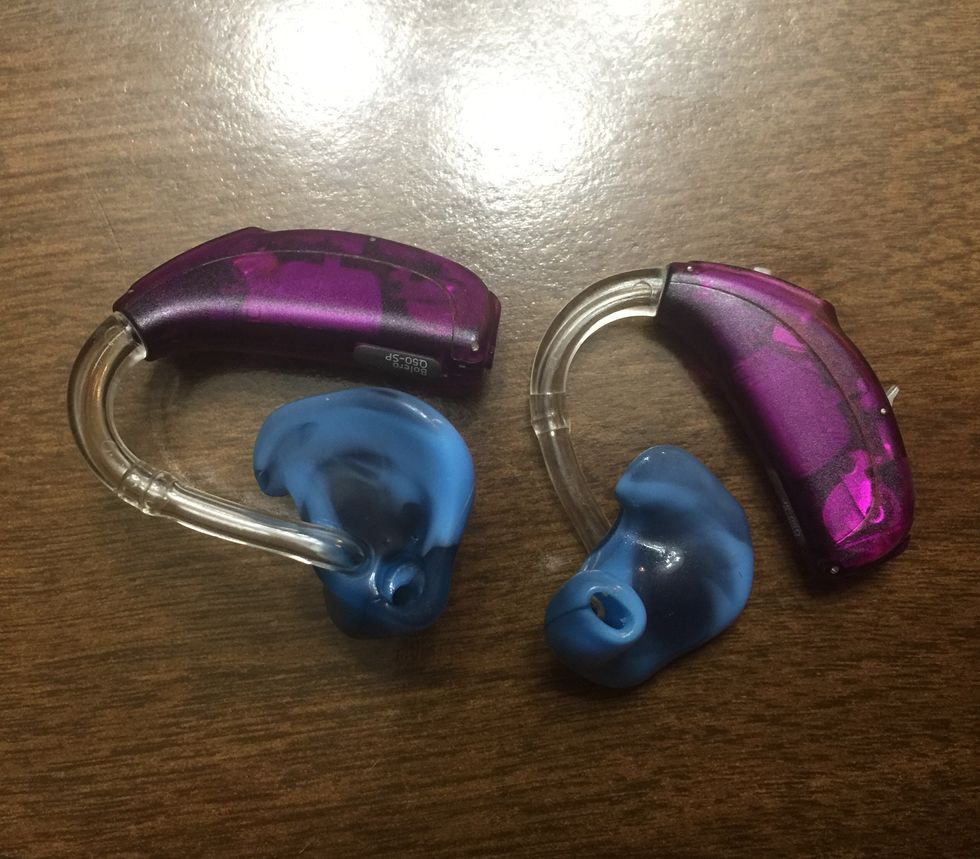I was born hearing, but at about three years old, I was diagnosed with a moderate sloping to a profound sensorineural hearing loss in both ears. At that time, I was living in Bluffton, South Carolina. I was diagnosed with a brain wave test in 2001.
There were no particular warning signs of a hearing loss until then. When I was born, I passed my hearing test with flying colors. My sensorineural hearing loss in both ears means that I have damage to the inner ear.
I wore hearing aids at the age of three. I wear bilateral Phonak BTE (behind the ear) hearing aids. I have the T-Coil activated. My molds I get changed every time I go to the audiologist. Currently, my ear molds have a mixture of brown, orange and black. ey are very non-see-able with my long hair. (Ha-ha.)
But no, it does not bother me even when my hair is up.
At first, my parents were not thrilled with me being hard of hearing. As years went on, they became assured that God had something to do with my hearing loss. Maybe I’m not ready to accept fully what it is, but I’m ready to know what will happen in the future. My parents were shocked that I had a hearing loss and my dad did not want me to have hearing aids whatsoever.
Today, both of my parents embrace my hearing loss and support my hearing needs. I have adapted so well to my hearing loss.
I’ll explain an audiogram: e circles mean right ear and the “X” stand for the left ear. I cannot hear the “F, K, S, G, H, P” sounds. I have the most trouble with high-frequency sounds.
I grew up in a hearing environment. She was an only child with hearing parents. She was introduced to sign language while in first grade. My preferred mode of communication is a total Communication approach. I prefer to be face-to-face when communicating. I do a lot of lip reading. I can speak English and sign but would like to learn more ASL, American Sign Language.
As I was going through grades at APW, I had different TODS, which was very strange. In my opinion, I did not like it all. Second Grade I had an interpreter that was not experienced. But, in Fourth grade, it got better, I was introduced to Stephanie Macro, as my interpreter, who was experienced in Sign Language. In fifth grade, this was the final change I was ever going to get. I got Charlotte Hall who was amazing! We had a lot in common.
At home, my support systems consisted of a little bit of sign language, lip reading and closed captioning. Closed captioning happens at both home and school. Usually, if I was watching a YouTube video in a class, I would prefer sign language translations. At home, if I was watching television I would use CC, word per word. I would not be watching the words all the time. Sometimes I would be watching the actor’s lips.
In everyday life, you are going to have to stand up for yourself in some situation. Self-advocacy is when you need to support yourself to get your needs fulfilled. Examples in school would be asking the teacher for the notes if your interpreter is not there, asking the teacher beforehand to talk facing towards you not away from you and ask your teacher to speak toward your good ear. I mean sometimes asking someone to do what is helpful is not so awful. When advocating for yourself, make sure you know what your rights are.
My biggest challenge with my hearing loss would have to be working with the public at a store; overcoming the fear of working and talking to hearing people. Another challenge would have to be learning how to accept the fact that I am going to have a hearing loss for the rest of my life. I have overcome obstacles by developing communication strategies that work for her in most situations.




 Photo by
Photo by  Photo by
Photo by  Photo by
Photo by  Photo by
Photo by  Photo by
Photo by 












